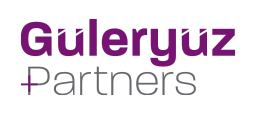Significant amendments were introduced into the Bankruptcy and Enforcement Code numbered 2004 ["BEC”] on November 30, 2021. One of these changes was regarding entitling debtors to sell their own seized property by consent.
In this respect, the Regulation on Granting the Debtor Sale Authorization [“Regulation”] [available in Turkish only] entered into force after being published in Official Gazette No. 31849 on May 28, 2022. The Regulation sets forth procedures and principles of Article 111/a of the BEC entitled “Granting Sale Authorisation to The Debtor”.
Debtor Must Apply to Enforcement Office Within 7 Days
According to the Turkish BEC, sequestration officer determines the value of the seized property after seizing it. Registered properties, however, is appraised by experts authorized by the Ministry of Justice.
At this stage, debtor wishing to be authorized for sale must submit their request to the enforcement office within seven days after receiving notice of valuation. Then, bailiff issues a certificate of authorization for debtor’s sale of their seized property. But first, the valuation procedure needs to be finalized.
Debtor Must Sell the Property Within 15 Days
The certificate allowing debtor to sale is valid for 15 days after delivery of the respective document to the debtor. Within this time frame, debtor must provide information on buyer’s identity to enforcement office, and buyer must deposit the agreed price to the bank account provided by the enforcement office.
The sale price must not be less than the total of (i) all costs made during the enforcement proceedings and (ii) higher of 90% of the appraised value or the total amount guaranteed with the property in question and the amount of privileged receivables.
Enforcement Court's Approval Is Needed for The Sale to Be Finalized
The bailiff decides whether the consensual sale requirements have been met after the sale price has been deposited to the enforcement office. If the bailiffs’ assessment is affirmative, they forward the case to the enforcement court for finalization of the sale, and delivery of the property.
After examining the document, the enforcement court makes a definitive decision within ten days to approve or deny the consensual sale of debtor, without having a hearing. If court decides to accept the sale, buyer becomes the new owner of the property, and enforcement office transfers and delivers the property to the buyer. If court decides to reject the sale, enforcement office returns the sale price to buyer within three days.
Status of Seizures on Property
It should be underlined that the transfer and delivery of the property for sale occur free of any seizures. Accordingly, enforcement office lifts such encumbrances in accordance with the enforcement court’s ruling.
In principle, transfer and delivery costs belong to the buyer. The sum deposited by the buyer is paid to the creditors after the subject of sale is delivered to the buyer or after it is prepared for delivery.
Importance of the Regulation
The reason for motivating debtor to sell their property consensually rather than the property being sold through the enforcement channel is that the property can be sold for a higher price that way. Otherwise, the property could be sold in an auction for even half of their assessed value. By selling the seized property by consent, the debtor will be able to pay off a bigger portion of their debt since the price will be at least 90% of the estimated value. As such, both debtor and creditors will benefit from this new opportunity given that a greater portion of receivables would be paid.
By Tarık Guleryuz, Partner, and M.R. Cafer Koc, Legal Intern, Guleryuz & Partners


